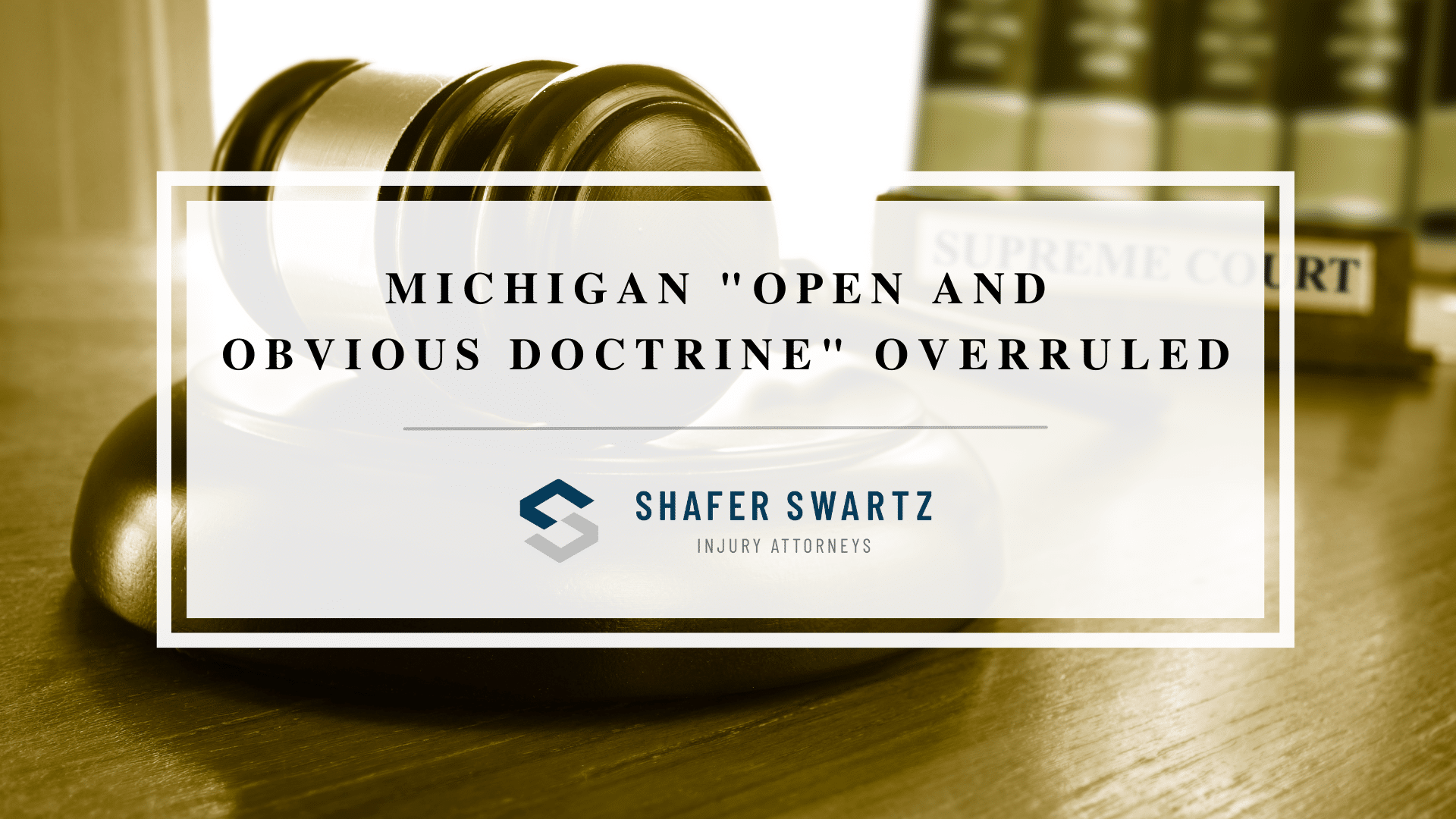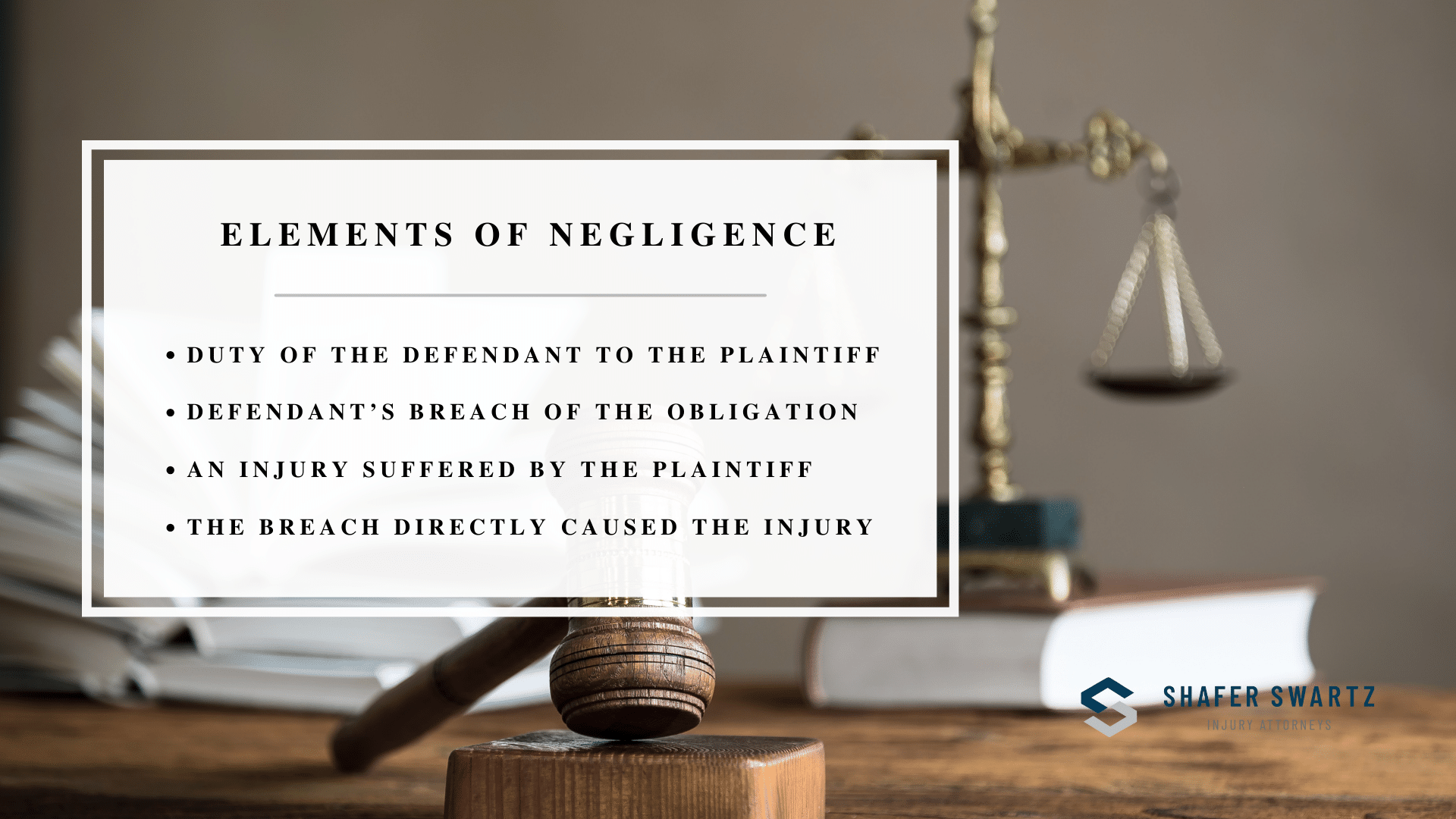In premises liability cases, particularly those involving slip and fall accidents or other injuries that occur on someone else’s property, defendants often invoke the open and obvious doctrine as a defense. Under this legal principle, property owners may not be held responsible for injuries resulting from hazardous conditions on their property if the danger was clearly apparent and easily noticeable to a reasonable individual.
However, on July 28, 2023, the Michigan Supreme Court overruled Lugo v. Ameritech Corporation, Inc., the leading case that applied the open and obvious doctrine concerning a property owner’s duty. As a result, property owners are now expected to increase their efforts in maintaining their properties. Moreover, plaintiffs of premises liability claims will now have a higher chance of receiving compensation for their injuries.
Looking Back to the Open and Obvious Doctrine
The case of Lugo v. Ameritech Corp. applied the open and obvious doctrine to determine whether a proprietor has a legal duty to an injured invitee. The plaintiff is Odis Lugo (Lugo), while the defendant is Ameritech Corp.
Lugo was walking through a parking lot toward Ameritech Corp.’s building. However, Lugo fell into a pothole. According to her, she did not notice the pothole since her attention was on a truck in the parking lot.
In this case, the general rule states that owners have no obligation to protect invitees from evident dangers. In effect, the invitees must avoid open and obvious risks. However, if special aspects make the open and obvious hazard unreasonably dangerous, the owner must place precautions for the invitees’ safety.
The Michigan Supreme Court ruled that an ordinary pothole in a parking lot doesn’t produce such special aspects. Lugo should have seen the pothole and avoided it. Hence, the Court ruled in favor of Ameritech Corp.
Understanding the Michigan Supreme Court’s Latest Decision
The cases of Kandil-Elsayed v. F & E Oil, Inc. and Pinsky v. Kroger Company of Michigan led to the overruling of Lugo v. Ameritech Corp. The Court combined these cases to determine the applicable legal framework if an invitee was harmed while on a landowner’s property.
Ahlam Kandil-Elsayed, the plaintiff in the first case, slipped and fell at a gas station operated by F & E Oil Inc. She argued that the snow and ice at the gas station provided a dangerous condition that injured her. On the other hand, F & E Oil Inc. asserted that the case involved an open and obvious condition, which Kandil-Elsayed should have avoided.
The plaintiffs in the second case are Renee and David Pinsky. Renee was shopping with David at a grocery store owned by the Kroger Co. of Mich. Unfortunately, she tripped over a thin cable strung from the counter to a display basket.
In overruling Lugo v. Ameritech Corp., the Michigan Supreme Court first explained the elements of negligence. Its elements include the following:
-
- Duty of the defendant to the plaintiff;
- Defendant’s breach of the obligation;
- An injury suffered by the plaintiff; and
- The breach directly caused the injury.
Next, the Court stated that the open and obvious condition is a part of the breach element and not of duty. The Court also mentioned that such an interpretation of the doctrine is consistent with Michigan’s comparative negligence system.
So once the plaintiff establishes the defendant’s duty in protecting invitees, the next step involves an inquiry into whether the defendant breached their duty. During the breach inquiry, the jury may consider the open and obvious doctrine in determining the plaintiff’s damages.
The Role of Comparative Fault
The comparative negligence framework allows courts to reduce the plaintiff’s damages according to their degree of negligence. Suppose the recovery amount is $100,000. If the defendant is 70 percent at fault, while the plaintiff is 30 percent responsible, the latter can only receive $70,000.
Implications for Personal Injury Cases
The Court’s decision on Kandil-Elsayed and Pinsky shifts the burden of responsibility from the plaintiff to the property owners. The proprietors may no longer use it to absolve themselves from the duty of protecting invitees.
Moreover, the plaintiff’s non-avoidance of the open and obvious danger may only reduce their compensation rather than losing their claim. The decision may also lead to more people filing personal injury lawsuits. Lastly, the cases will more likely proceed to trial with the help of an expert attorney.
Shafer Swartz PLC’s competent Michigan personal injury lawyers can help prove your case so you can receive the proper compensation. Call us at (231) 722-2444 or contact us here to book an appointment.


